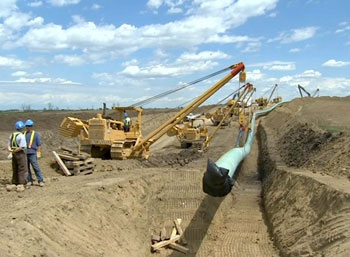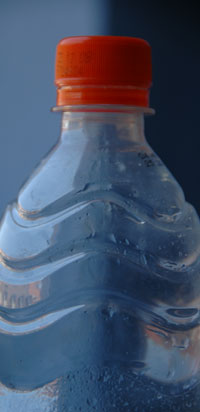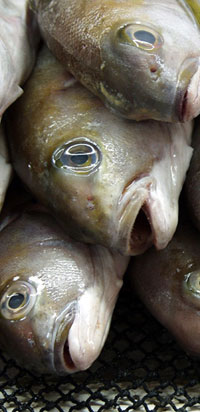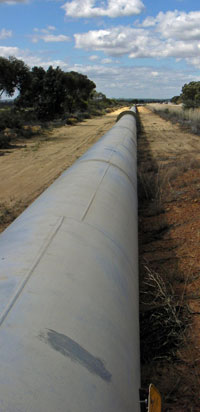
 An oil spill in Kansas this week prompted TransCananda to shut down its Keystone pipeline, which has already seen 11 spills in its first year of operation.
An oil spill in Kansas this week prompted TransCananda to shut down its Keystone pipeline, which has already seen 11 spills in its first year of operation.
Meanwhile, the U.S. State Department is considering fast-track approval of a new pipeline operated by the same company that would link the tar sands of northern Alberta to Texas refineries. Supporters claim the development would offer the United States energy security, although output may end up exported. Several groups are worried that environment review is getting short shrift, especially considering the pipeline’s proximity to the Ogallala aquifer.
All pipelines eventually leak, and the proposed Keystone XL would more vulnerable than most. Shale oil is thicker than its drilled-out-of-the-well counterpart. So to keep it flowing through the XL, TransCanada plans to thin it with other petroleum condensates and use internal pressures higher than typical in the United States, making leaks, and a catastrophic failure, more likely.
Potential risk: A major leak from the XL could contaminate the Ogallala aquifer, once the largest underground body of fresh water in the world. The Ogallala has been drawn down by poorly managed irrigation, but it’s still tremendously important to the economies and ecosystems of eight states.
Follow the money: The Keystone XL project is worth billions of dollars to TransCanada and the other companies involved. If the XL is approved, look for stories on the millions that are likely being spent on lobbying, campaign contributions, and PR operations to get the public to embrace the project.
Click to read more about this topic
My question is how many such leaks happen at pumping stations across the United States? Because Keystone hasn’t had this issue in Canada. Granted the length of Keystone in Canada is tiny compared to its leg in the United States. But all of the leaks have happened with fittings and valves at pumping stations, so I don’t think this issue is related to Keystone’s being a bitumen pipeline. Environmental groups in the United States have claimed that bitumen mixes are more corrosive than oil. I think it's a valid concern for older pipelines because the composition of the material flowing through them has changed. But for new pipelines, such as Keystone, they take all of that into account. We'll see what the studies show.
To its credit: TransCanada has shut down the entire pipeline twice in the last two weeks in response to two separate leaks to replace fittings. It has touted its accurate, quick leak detection and response system. But nobody cares about that. They care that leaks keep happening. Still, TransCanada seems to be working hard to ensure that these spills don’t keep happening.
Notable quote: One analyst likened the spills to “growing pains.” TransCanada is known as a natural gas matriarch in Canada. Keystone is its first oil pipeline.
Click to read more about this topic
- Pipeline Problems Hit Canadian Crude Prices [By Dina O'Meara, Calgary Herald]
- TransCanada's Keystone Pipeline Has New Leak [, CBC News]
- Oil Gains for Second Day on Keystone Pipeline, U.S. Consumer Confidence [By Grant Smith and Yee Kai Pin, Bloomberg]
- Pump station Spill Shuts Keystone Pipeline [By Carrie Tait, The Globe and Mail]
| Tweet This Page |










